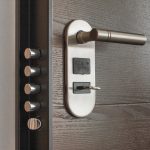Managing Your Money Easily
Another year has begun, and you are probably wondering where all your money went. So, what is the best way to manage your finances?
If you are tired of always asking yourself the same question, you should start a new year with a new mentality and a more pragmatic approach. That will allow you to relax and manage your expenses more wisely.

Here are 7 practical tips on how best manage your money:
1. Analyze Your Finances
It may seem too obvious, but we are often satisfied with how much we spend.
We cannot, however, really save money without knowing what we spend it on. Write down your daily expenses for a month, so that you have the most reliable estimate of your upcoming expenditure. It is useful to divide the expenses into fixed and variable.
FIXED EXPENSES
By this, we mean expenses that vary little from month to month.
It is possible to reduce them over time through long-term strategic choices. However, if you want to create a functional budget for the new year, these expenses must be considered as certain. Fixed expenses include:
- Rent
- Insurance
- Installments to be paid
The “personal savings ” category should also be a fixed component of your spendings.
We often make the mistake of “putting aside” what is left after having spent all our money. Managing money doesn’t mean saving what you don’t spend!
If we really want this year to be different, it is better to abandon this method. Set yourself an amount you want to put aside each month.
VARIABLE EXPENSES
By that, we mean expenses over which we can exercise greater control. These include entertainment, clothes, traveling, and everyday expenses, such as meals in restaurants, gasoline, and food.
With variable expenses, you have more room for maneuver in the management of money. It is here where you can make substantial cuts.
2. Create a Personal Budget
Now that you have a clearer view of your income and expenditure, you can start calculating your budget. The budget is the first step to managing your money effectively.
- Determine the amount you expect to spend each month (based on your fixed and variable expenses).
- Divide it into categories (e.g., food, transportation, entertainment, and gifts).
- Try to stay within the amount.
THE ENVELOPE METHOD
Once you’ve allocated a sum you’re prepared to spend on each category during the month (or week), you should put it into an envelope (one envelope per one category).
Whenever you face an expense in a specific category, you can make money only from the correspondingly-named envelope (unless the expense falls into another category). Once the envelope is empty, you will be aware of having exhausted the funds for that particular purpose.
For many, cash helps to visualize better how much they actually spend, and the envelope method allows them to realize their financial goals and avoid excessive expenses. But some tools let you see what you are spending your money on without the need to keep too much cash available.
COME UP WITH A BUDGET
Creating a good budget is one of the secrets to effectively managing your money.
To come up with one, you should meet the following criteria:
- Be realistic
- Tailor your budget to your needs
You can find all kinds of methods for coming up with your own budget on the net. One of them, called the 50-20-30 rule, works as follows:
- Allocate 50% of your budget to fixed expenses
- Put aside 20%
- Designate 30% to variable expenses
However, not everyone has the same goals and possibilities.
You can draw your inspiration from others, but you need to make sure that your budget is tailored to your needs.
It is OK to make small adjustments, especially at the beginning. It is all about starting and trying to stay as close to your goals as possible.
3. Make Money-Saving Meaningful
It is important to be clear about why you are saving your money for.
Here are some examples:
- Holidays
- Car
- Emergencies
Without an objective, it is easy to lose motivation and spend your savings on other purposes.
Having a goal makes the money-saving process more gratifying and allows us to look at things from another perspective.
Have you decided to bring your lunch from home instead of eating it at the bar?
Cooking might seem less tedious if we think we can do it for the coat that we need and that we like so much.
When you are broke, saving money may seem impossible. However, after a while, it gets easier and becomes a good habit.
MONEY-SAVING TRICKS
Here are 3 recommendations that can help you.
- The 24 (or 48) hour rule
To prevent “impulsive buying,” give yourself 24-48 hours to decide whether to proceed with a purchase. Based on your expenses and objectives, you can set the limit beyond the amount this rule is based on — it helps to make the purchasing process more intentional. This rule can also be useful for married couples: setting a limit can help reduce all money-related disputes and stress. - Put small change in a jar
Depending on how much you pay each time, you can save up to $100 a year. You can also come up with other ways of saving money. For example, every time you withdraw cash from an ATM, you can allocate 10% to your piggy bank. Or, if you’re a student, keep all the money saved on the https://www.buy-cheapessay.com/buy-thesis-paper thanks to special discounts. Unleash your imagination! - Make smart purchases
Use coupons, online discounts, sales, comparison sites, or simply buy unbranded products instead of branded ones whenever possible. Set aside what was saved, instead of spending it on other purchases. That will allow you to avoid buying unnecessary stuff and re-calibrate a budget for that particular category.
4. Invest in Yourself
Not everything we save on helps us make savings.
Driving 10 km to pay 10 cents less for a liter of gasoline may not be the smartest idea. Buying family meals when you’re alone and then throwing them away is also a waste of money.
At the same time, investing resources in yourself is a great way to save. For each purchase, ask yourself if it is in line with your personal values and goals. Otherwise, you might be spending on something you don’t really need.
5. Automate Expenses and Savings
It is possible to automate payments related to the fixed expenses we expect each month. That will allow us to avoid penalties for late payments.
One more way is to deposit a portion of your salary to your savings account.
6. Review the Basics
Spending less than you earn is rule number 1.
If your expenditure exceeds your earnings, you should think about developing new strategies.
WHAT VARIABLE COSTS CAN BE ELIMINATED?
What we can get rid of are the additional costs we bear for late payments. By organizing your finances effectively, you can always meet deadlines and get instant benefits.
Also, avoiding withdrawing cash from ATMs helps reduce commission costs.
WHAT FIXED COSTS CAN BE CUT?
It’s a good idea to accelerate the repayment of debts (starting with those with the highest rates) if there are extra revenues to be had (e.g., bonuses, gifts, reimbursements, etc.). That way, you will see your debts disappear faster than before.
Other possible solutions include looking for a smaller apartment or a roommate to share expenses, opting for cheaper tariff plans, or using small money-saving tricks.
Reviewing your expenses is the most challenging part, but the one that generates the most value.
7. See Things From a Different Perspective
What else can you do to manage your money most effectively?
How about making money on the side? There are lots of ways to supplement your income without leaving your home.
Being a dog-sitter, for instance, has become much easier thanks to the Internet.
There are special sites where you can offer your services based on your availability. You can teach languages, buy and sell things, test websites, narrate audio books, answer professional questions, etc.








Pingback: Get Online Payday Loans For Bad Credit For Unplanned Travel | My Beautiful Adventures
Pingback: Seven Resources And Tips To Take Control Of Your Finances | My Beautiful Adventures
Pingback: Getting A Debt Consolidation Loan With Bad Credit | My Beautiful Adventures
Pingback: Eight Best Ways To Save On Your Household Costs In 2022 | My Beautiful Adventures